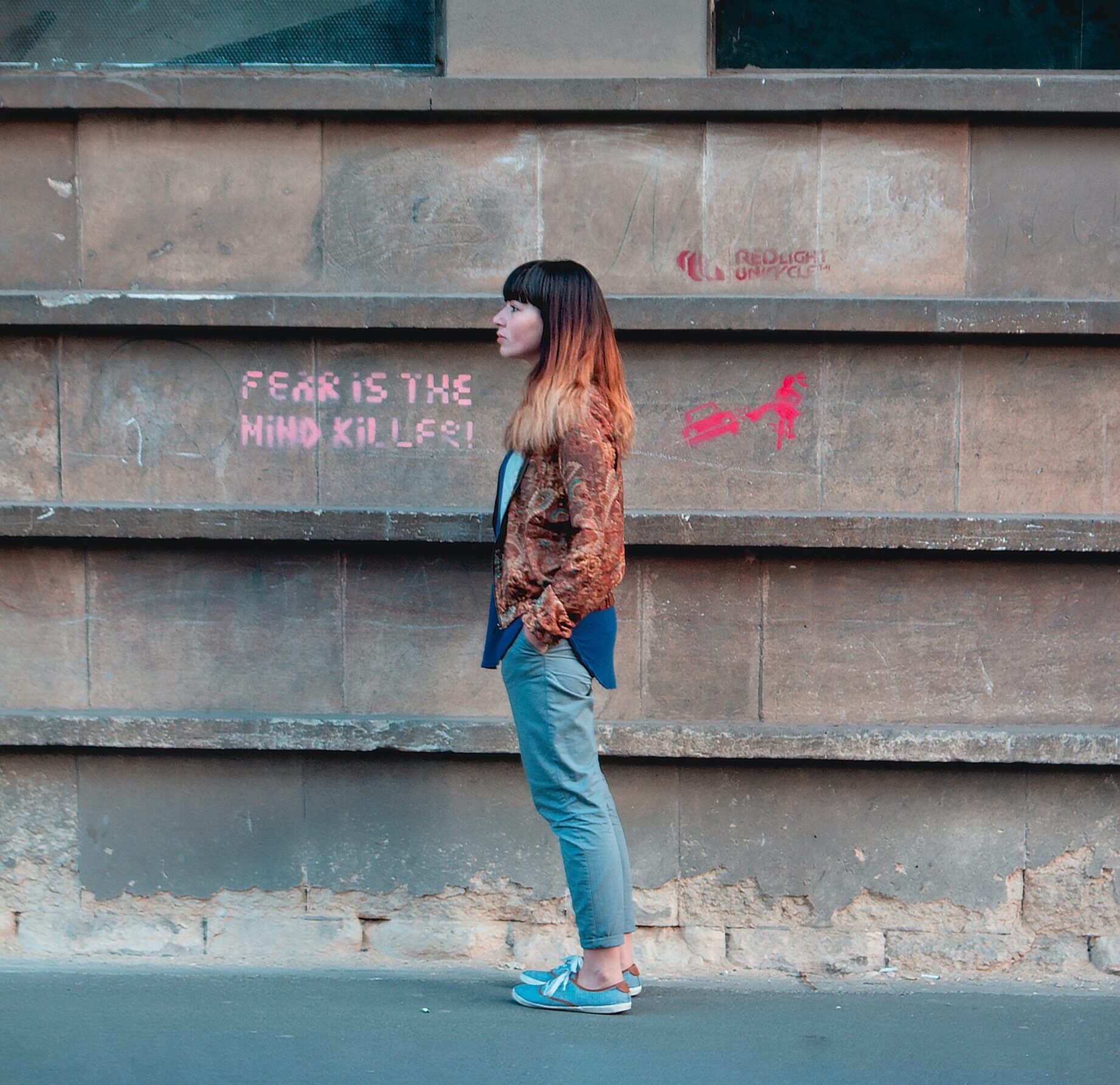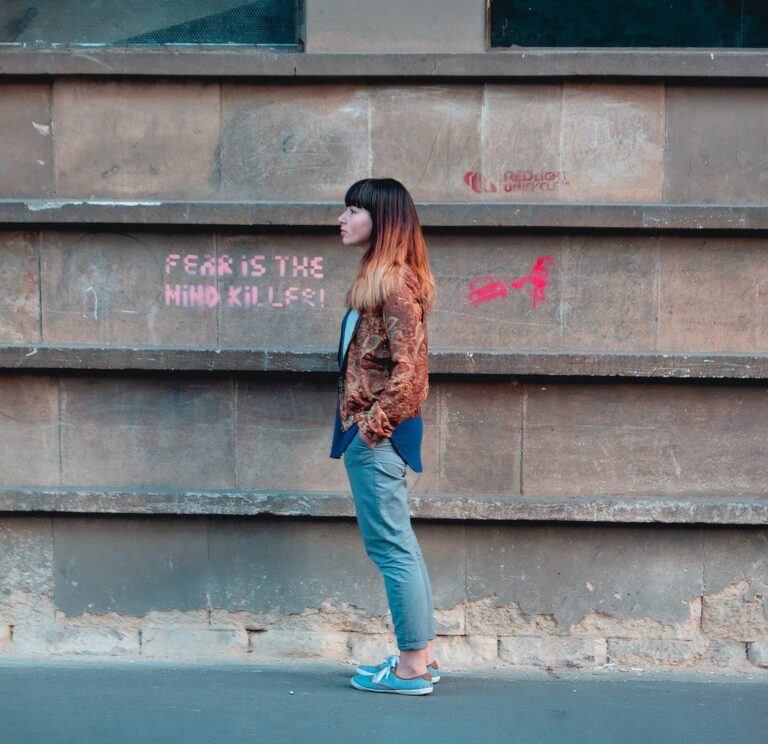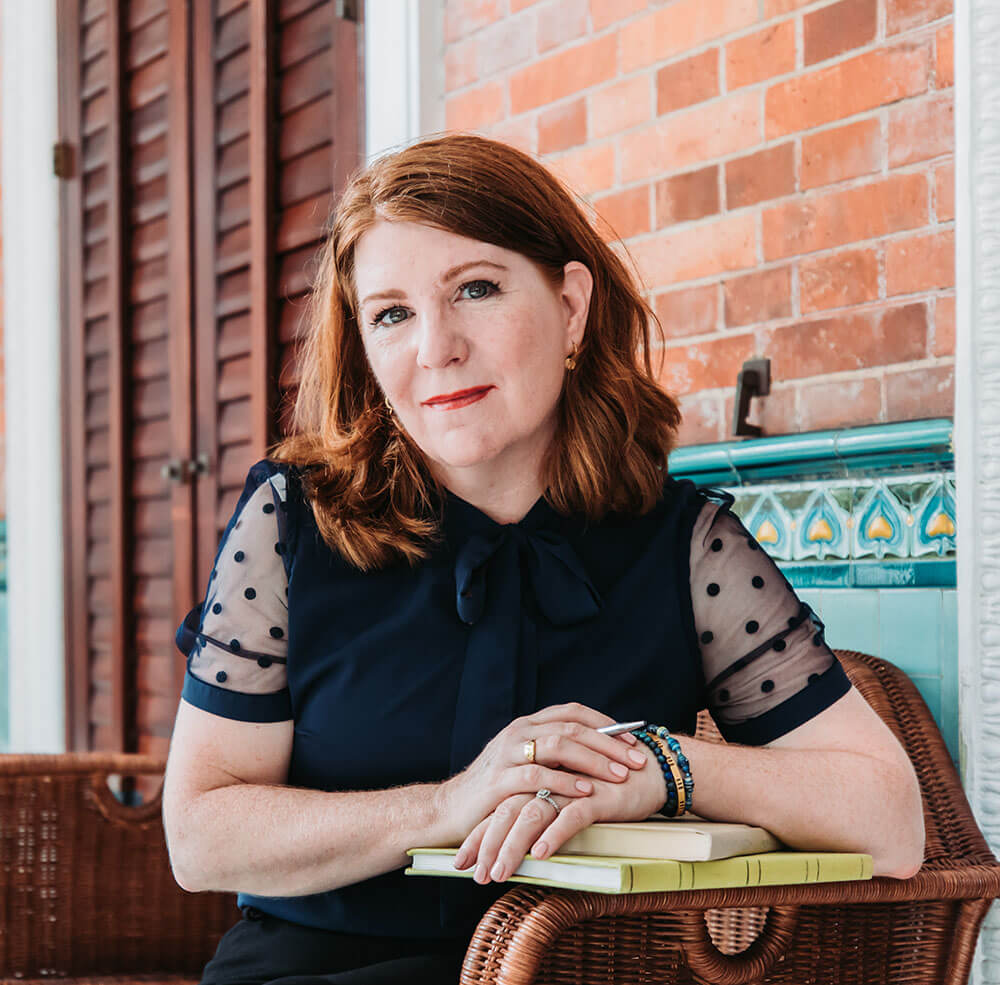Fear is made up.
Did you know that? We aren’t born with a fear response (except an innate fear of falling and of loud noises). The rest of our fears develop over time. We learn to be afraid.
The things we don’t learn through lived experience (being afraid of dogs if you were hurt by one as a kid, for example), we make up. And we make up a LOT of fear.
What’s wild about this is that the brain does not know the difference between what is real and what is imagined. We have the same physiological response to a scary event we pretend (make up in our imagination) as we do to the real event.
Lemme say that again–your brain doesn’t know what is a real story and what is one you are just thinking about.
(Please use your imagination to insert a shocked face emoji here.)
“When you specifically imagine something, really trying to mimic reality, you activate the same regions in the brain you’d activate when you are exposed to the real thing.” – Dr. Daniela Schiller, neuroscientist, as quoted here.

You probably know this if you have ever imagined something horrible happening to a loved one and found yourself moved to tears at their totally made-up funeral when you keep going with the story you are unfolding in your brain.
I know I’m not the only one who has been caught sniffling and been like, ‘Oh, nothing’s wrong! Just curious, what songs would you want played at your funeral? (*wipes eyes*) I have definitely traumatized myself with various scenarios like this. I have MADE ALL OF THIS UP and my body has responded with grief and sadness over an entirely MADE-UP event.
Not to say that using our ability to create a fearful story is never useful. For sure, fear can absolutely keep us safe. If you’ve never read Gavin de Becker’s book, The Gift of Fear – Survival Signals that Protect us from Violence, I highly recommend it.
Fear is an incredibly useful tool. In contained doses.
The problem with letting fear run the story is that it is only useful for a second. When we are in fight, flight or freeze mode, processing to other parts of our brain slows down and we have difficulty making rational decisions, or even speaking.
Think of it like when you put your hand on a hot stove. How long do you need to feel the pain for it to be useful information? Not more than a fraction of a second. After that, keeping your hand on the hot stove (or making up stories based on our fears and worries) just does unnecessary damage.
So if the story we are making up is NOT HELPING us, why not make up a different story?
I’m not saying let’s pretend a lion is a house cat or a decide that the person in the dark alley is just friendly. Most of the fear-based stories we are making up are worry and anxiety about the future and future events that are not based in immediate physical danger.
We’re worrying about that bill or the relationship or what will I do if….? We are making up stories and scenarios about the car breaking down or the college-aged kid and the choices they are making. The inner dialogue we are creating about these possible futures is keeping our brains under an incredible amount of (made up) fear and stress.
Living in these fearful scenarios keeps us from being able to use our imagination to create possible solutions. Our brain spirals in fear and our capacity to actually problem-solve gets smaller and smaller.
Since we are making things up anyway, what if we made up some alternative stories that aren’t based in fear?
You might say: we can’t just go around and pretend everything is fine! To which I’d say, why not?
How? By using our imaginations to create from the very opposite of fear – love.
“Elisabeth Kübler-Ross, a psychiatrist best known for her model of the five stages of grief in terminally-ill patients, had some profound thoughts about love and fear.
In her book Life Lessons, Two Experts on Death and Dying Teach Us About the Mysteries of Life and Living, co-written with David Kessler, Kübler-Ross discusses some big ideas about love and fear. Love and fear are the two primary emotions in humans. Kübler-Ross argues that all other emotions exist under these two primary emotions: either an emotion comes from a place of fear or a place of love. These core emotions underlie every other emotion we have.
Love and fear are opposites.
Love breeds positive emotions like joy, peace, and satisfaction. Fear breeds negative emotions like anger, guilt, and sadness.” — Ward Andrews, Design.org
If you remove fear, what else is possible in the story you are making up? I’m not saying to change the facts of your life (you have a bill that is due). I am talking about changing your limited perceptive of that fact. What else is possible besides fear? Let’s pretend (because we can) that you are afraid of the bill because you don’t know how you can pay it. Set the fear of the consequences of not being able to pay it aside for a moment. Pretend you CAN pay it. Now, you’ve given your brain a problem to solve, and I wonder what you can come up with.
If your brain thinks it’s possible to pay the bill, it will start to find some solutions. You’ll suddenly remember birthday money from your Aunt that you have tucked away in your drawer. Or you’ll recall that record shop that mentioned they were looking for albums in the era you have left over from your garage sale. Maybe you’ll call the business and see if they can work with you on a payment plan.
The idea is to remember that fear is made up. You’ll know your story is coming from fear (and not love or even reality) because it will create feelings of anger, guilt, shame or sadness. Fear will make you panic and fret and be anxious.
Fear is a terrible use of your imagination.
Try making up some other stories. What pretend scenarios create feelings of curiosity? Gratitude? Creativity?
What else is possible? What other options can you see?
(I almost posted a list of funeral songs here. But I resisted because that is NOT the story I want to make up!)
Photo by Emmeline T. on Unsplash – thank you!





